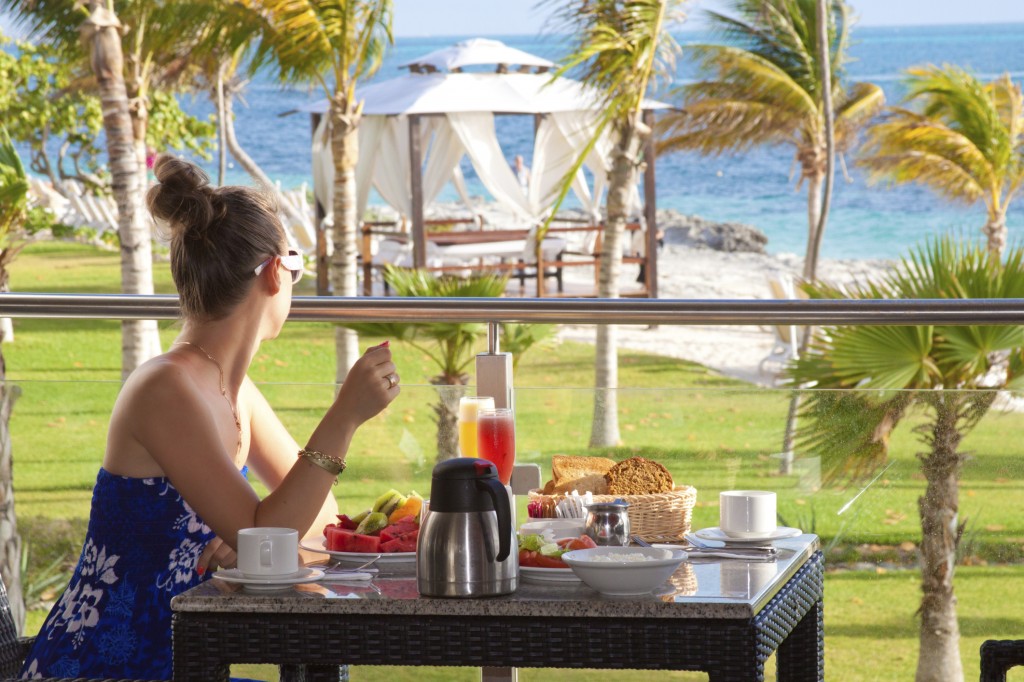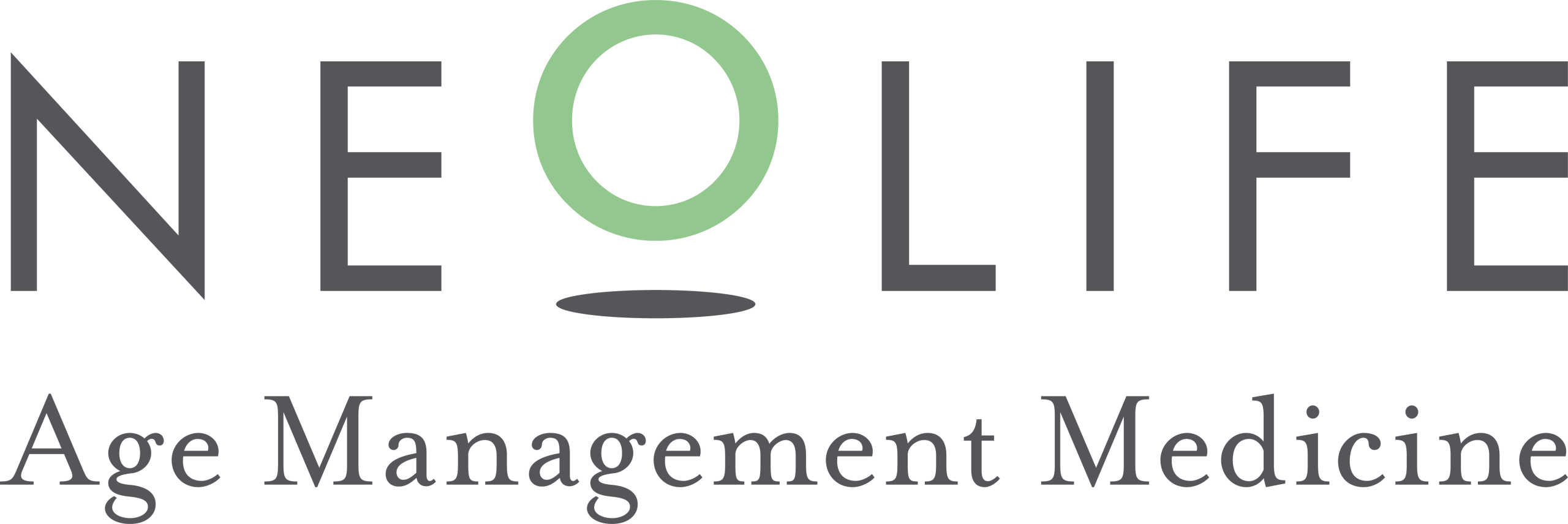Neolife Nutrition Department
A solar erythema (1st degree burn) in childhood or youth may be enough to double the chances of developing skin cancer later in life.
Both excessive sun exposure and changes in our eating habits during summer could take their toll, as they directly affect the biomarkers of health and longevity. We should not forget the importance of maintaining a healthy diet during vacation and try not to abandon the healthy eating habits we have been following in the months beforehand.

The summer diet
In summer, we change our surroundings, carry out different activities and have a different pace of life in general. Sleeping patterns also change and are different from the rest of the year. All of this has a direct effect on our diet: not only do meal times get later, but we also tend to eat out a lot more. This is why we should not forget the importance of also maintaining a healthy diet during vacation, in order to avoid giving in to excesses and abandoning the healthy eating habits we have been following in the months beforehand.
Sunburn in summer
We have to bear in mind the damage that the sun can cause us. Sunburn can have very long-term effects. A solar erythema (1st degree burn) in childhood or youth may be enough to double the chances of developing skin cancer later in life. Despite scientific evidence, we do not always take the appropriate preventive measures against skin cancer.
We should take into account that sunburn can present itself 12-24 hours after sun exposure and, therefore, preventive measures ought to be taken before exposure. However, much depends on our skin phototype. People with pale skin may suffer first degree burns in just 15 minutes of sun exposure. Solar erythema is a type of sunburn that is characterized by redness and dryness of the skin, pain upon contact with clothing, and hot to the touch…
Sunburn, as with other non-sun related burns, is classified in three types:
- First-degree (erythema) and second-degree burns can be treated at home.
- Third-degree burns present infected blisters, chills and fever…, and must by treated by a doctor.
Here are some recommended guidelines from us at Neolife so that you can relax and enjoy the holidays without them taking their toll on your health.
How do you take care of your diet?
- Try not to disrupt or skip your meal times too often. As we are likely to indulge a little more in summer, going out for dinner and having a drink or two in the bars and terraces, try to compensate for these indulgences at other times. The best thing to do is have a hearty breakfast, just a single course for lunch with a salad (a source of protein with a side of vegetables, legumes or grains) and a very light dinner. If during the day you eat too much, compensate by eating less for dinner.
- At lunch and dinner, avoid an excess of calories, avoiding bread, alcohol and dessert.
- Together with breakfast, dinner is also key to maintaining your weight through the holidays. As a rule of thumb: your first meal of the day should be generous and your last meal light. Dinner is the ideal meal to nutritionally compensate for everything else you have eaten that day and to achieve a caloric balance that tilts in your favor.
- Unless you go out for a walk or go dancing after, dinner is the one meal you are less likely to burn off. The calories you take in at dinner will therefore be stored in your body for when you need them. If there are too many calories, they will be stored as fat in our most troublesome areas.
- To avoid getting too hungry at night, it is important that you do not skip meals during the day, including a light snack in the middle of the afternoon.
- For lunch, a salad dish is recommended as a single course; vegetable and protein salads are less calorific, while those containing legumes keep us fuller for longer and are very healthy.
- Between meals, have nuts, natural mixed fruit and vegetable juices and fresh fruit.
- Always keep a bottle of water at hand or carry a flask with home-made iced tea with lemon and saccharin. What we must remember is that, due to the heat in summer, we are more likely to get dehydrated. This is why it is recommended to drink more fluids and prioritize the intake of fresh food, especially fruit and vegetables, as these are rich in water, vitamins and minerals and help to rehydrate the body.
- Be careful drinking beer out on the terraces: it’s fine to drink in moderation, but avoid getting yourself cooked in the sun.
- If you fancy an ice cream, a popsicle or sorbet is always a better alternative.
- To fill you up for longer, choose meals that are high in fiber. Eating vegetables, fruit and legumes will fill you up without adding on excess calories.
- Get moving. Being on vacation and resting does not mean staying in one spot on the beach doing nothing all day. You can enjoy morning strolls along the promenade, skating, jogging, swimming…The possibilities are endless!
- Respect the need to rest. Sleeping between 7 to 8 hours is essential for our body to rest and optimize the functioning of our organs.
How do we protect ourselves from sunburn?
- Ultraviolet radiation is most intense between the hours of 11:00 and 15:00. Within this timeslot, preventive measures should always be taken.
- Wear a cap or a hat and a good pair of sunglasses. The skin on our face and our connective tissues are much more sensitive to the effects of solar radiation than the rest of the skin on our body.
- Sun exposure should be gradual at the beginning of the season: just a few minutes can be enough during the first few days. As we get tanned, we can increase the amount of time we spend in the sun.
- If it is cloudy, it does not mean that we are safe from sunburn. We must take into account that ultraviolet radiation is reflected in the water or in the sand on the beach and, therefore, we are still exposed even when we are in the shade.
- Use sunscreen. Remember, a single application of sunscreen is not enough for an entire day. We should apply it at least every 2 hours and make sure we are using factor 15 or above (if possible use factor 50). Look for sunscreen that in addition to UVB filters also protects against UVA rays.
- Antioxidants such as ubiquinol, astaxanthin and resveratrol, among others, have an internal protective effect on cell damage caused by solar radiation.
- Protect yourself from the sun, not only with sunscreen, but also from within, through your diet. Some foods that prepare your skin for sun exposure include green tea, carrots, pink grapefruit, dark chocolate and lobster. A diet rich in fruit and vegetables is the most natural way to provide our body with antioxidants.
- Some medicines, such as ibuprofen, increase the predisposition of the skin to burn. If you are taking medication, make sure that they do not increase photosensitivity.
- If a first degree burn does occur, applying creams or gels with aloe vera or moisturizers will relieve the pain and improve the regeneration of the skin. There are other natural remedies – such as applying vinegar or slices of potato on the burn – which also provide certain healing effects.
